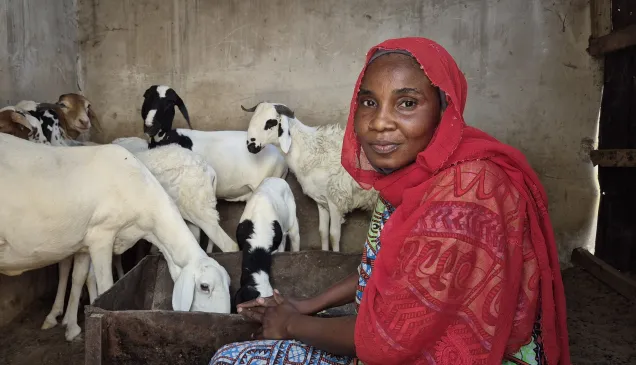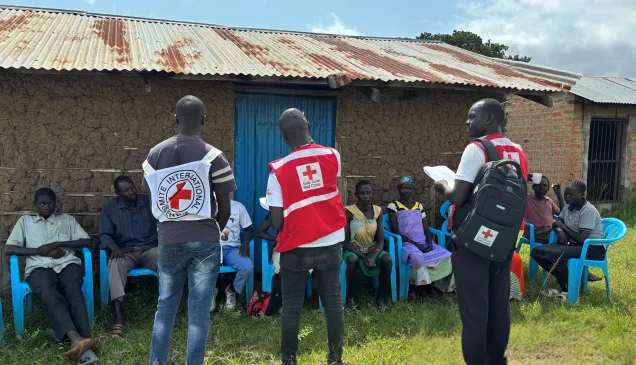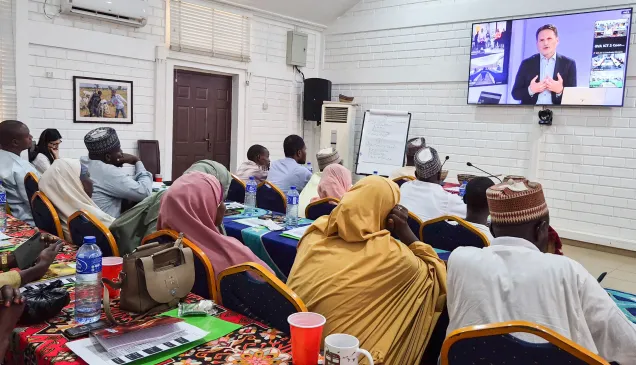Displaced in your homeland: Echoes from Lake Chad’s unending conflict
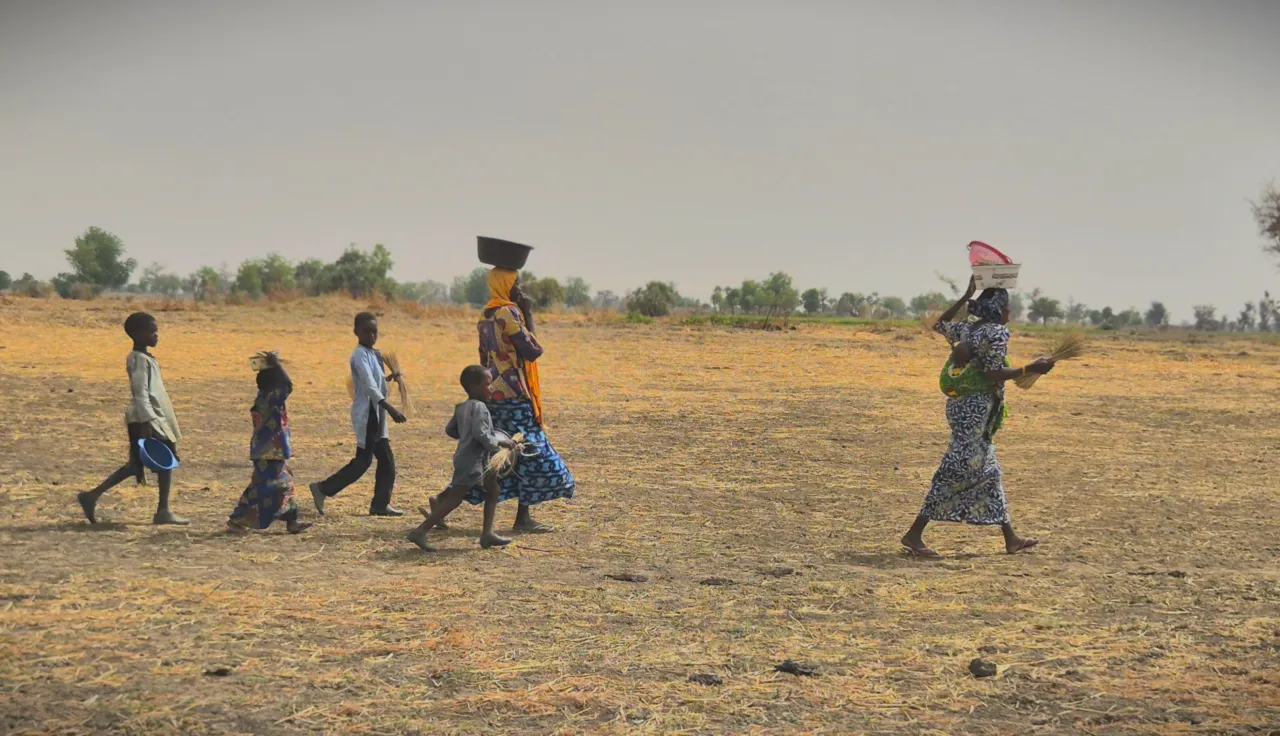
In the golden hours of the morning, Isiaku walks through a thick rice paddy in Usur village, water lapping gently at his ankles. His steps are slow but guided by a strong determination carved over years of hardship.
The air smells of wet clay and grass, a far cry from the scent of fish that once marked his mornings in Abadam, a town along the fringes of the Lake Chad in Borno state, Northeast Nigeria.
A fisherman by birth and trade, Isiaku had never imagined a life away from the water and its fish. The Lake Chad was not only his livelihood; it was his compass, his heritage and his world. “The lake was kind and generous” he says with a reminiscent deep smile. “I never feared hunger".
But eleven years ago, violence swept through his village, turning life into an escape. Homes were burned, boats were abandoned, and fishing nets were left to rot. Like many others, Isiaku was forced to flee for his life. He found temporary refuge in Bosso, a small town across the border in Niger, where survival became tougher.
Eventually, he and his family returned to Usur, an ancestral village he had only visited. Though welcomed by his kin, he arrived as a stranger, bearing wounds both visible and silent. With families already stretched due to the severe effects of conflict and food insecurity in the region, Isiaku knew the warm reception was not going to last forever. He had to find a way to feed his family without being a burden on those who have welcomed him with open arms. This time though, there is no generous source like the rivers in Abadam.
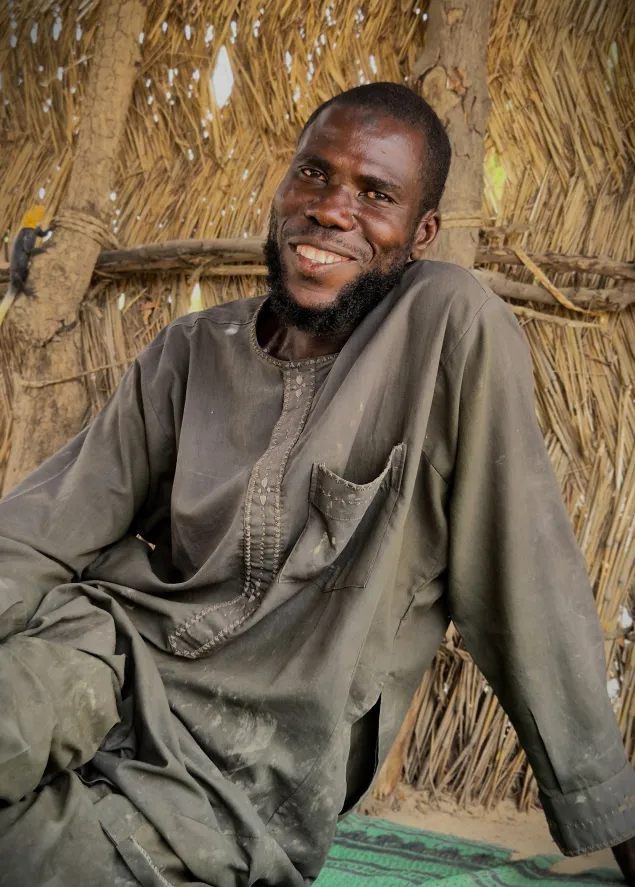
ICRC/Usman Kundili
ICRC/Usman Kundili
The first seed of hope is sowed
Again, his kin showed their invaluable kindness. They offered him a piece of land to farm, a gesture that sowed the first seed of hope. Farming rice, however, is nothing like fishing. “With the lake, you cast a net and trust the water,” he explains. “With farming, you labour, sweat, and wait. You fight pests, dryness, and debt.” He points to his hands, now rough with calluses, not from fishing ropes, but from hoe and tilling the earth.
“This land is not the Lake, but it has given me a chance and for that I am grateful.” Isiaku says, staring at his blossoming rice field. With news that his hometown (Abadam) has been resettled, Isiaku now hopes for a bountiful harvest, enough to support his long-awaited return to familiar ground and waters to begin the daunting journey of rebuilding his life from scratch.
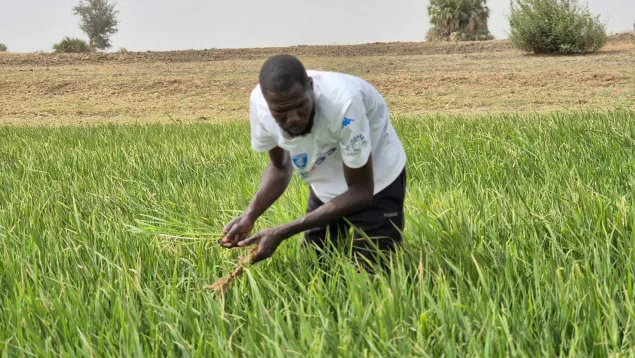
Isiaku at work in his rice farm.
Isiaku’s struggle is a shared one. Across Northeast Nigeria, stories like his echo through abandoned villages and strained towns hosting displaced communities. The same journey, of loss, adaptation, and resilience, plays out again and again. Among those bearing its weight are women like Hassana, a mother of seven whose world collapsed when her husband died seven years ago. He went fishing and never returned alive.
To feed her children, Hassana began collecting bags of paddy rice from local farmers on credit. She would process the rice locally, selling it in small quantities just to afford a meal or two per day. But survival came at a cost. An overwhelming pressure to repay suppliers, even when there was nothing left after feeding her family. “It was hard,” she admits. “But I had no choice, my children depended on me to eat”.
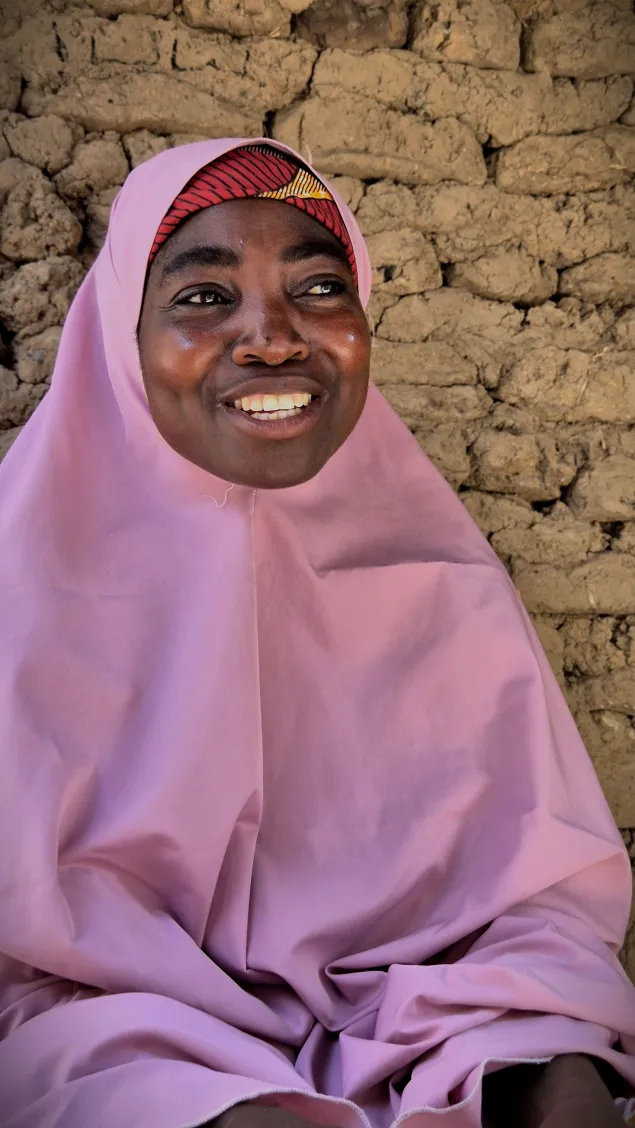
ICRC/Usman Kundili
ICRC/Usman Kundili
Then came a turning point. In 2023, Hassana was selected among 64 individuals in Yobe state for support through a program by the International Committee of the Red Cross (ICRC) called Micro-economic Initiative, aimed at empowering individuals from conflict-affected communities to rebuild livelihoods.
She received a grant, which she used to expand her small rice-processing business. With the seed capital, she not only repaid her debts but also hired farmland and began cultivating rice herself. “I am not only buying paddy rice from farmers now, but I have also ventured into farming, and I grow rice myself”, she says proudly.
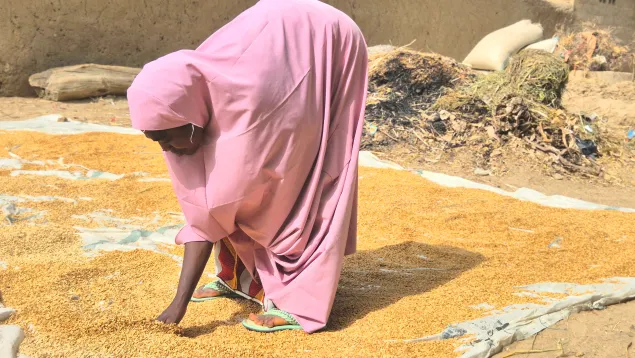
Hassana tends to rice she processes in her small business.
Hassana’s transformation is inspiring. From dependency to self-sufficiency, from survival to sustainability, and most importantly, from desperation to dignity.
Even as Hassana rises, others still walk the line between hunger, desperation and hope. In a nearby field, two women along with their children, who were once residents of a small village 30 kilometres away now abandoned, stoop low to sweep and pick fallen rice grains from the previous harvest. Their hands sift through dry grass, clay, and chaff, hoping to gather enough just to cook a single meal. These women, driven from their homes by both conflict and extreme flooding, now work seasonally on farmlands, striving to get food for their families.
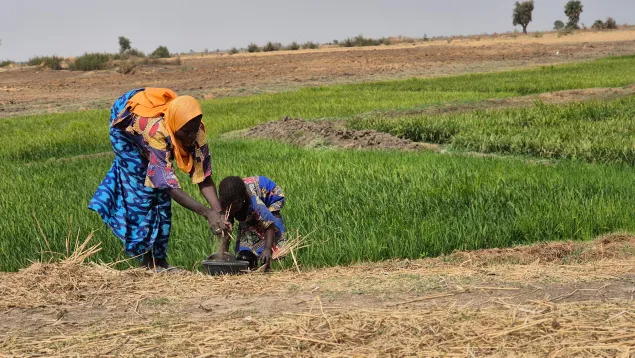
A woman and rice glean for fallen rice grains from a rice field. Usur Village, Northeast Nigeria.
Each grain they collect tells a story of desperation and the cruel intersection of climate and conflict. “When there is no food, this is all we can do,” says one of the women, her fingers coated in earth.
Their actions stem not from laziness but a will to survive. This has been the stark reality for over 15 years of conflict that has ravaged Northeast Nigeria and continues to displace about 2.2 million people. Thousands of families have been torn apart while millions have lost livelihoods due to prolonged violence. According to the latest Cadre Harmonisé report, the Borno, Adamawa, and Yobe (BAY) States account for 15% (3.7 million people) of Nigeria’s food-insecure population.
From the muddy paddies of Bade, resilience grows like rice in flooded fields, slowly but persistently. Despite walking different paths, Isiaku, Hassana, and countless others across Northeast Nigeria and the wider Lake Chad region, have been caught in the same devastating cycle of violence. And through it all, there remains a common thread, the dream of return. Not just to a place but to a sense of normalcy, to the dignity of self-reliance, and to the rhythm of life once known.

